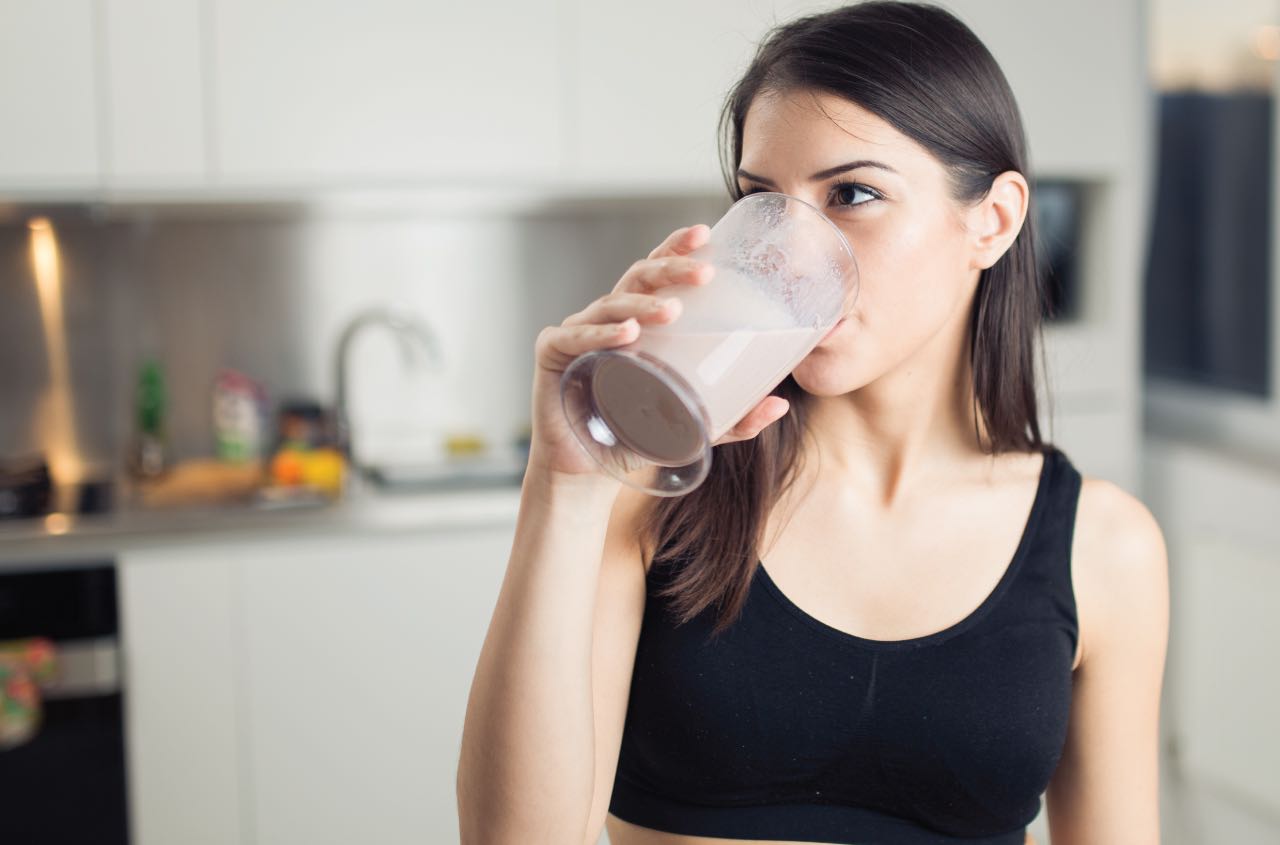In a previous article, Protein 101 – How Much Do Lifters Really Need, we discussed all the research surrounding protein intake. The post provided specific recommendations on how much to consume and provided a short background into the digestion process.
Now that we have a solid foundation of this topic, we’re going to dive into some of the common questions that come up in a conversation about protein.
Let’s start answering those questions…
Q: How much is too much?
A: You often hear people warning about the “dangers” of protein intake when it comes to kidney function and urea excretion. Urea is a toxic byproduct of protein metabolism that can be a problem for those with pre-existing kidney issues.
But when you dig into the actual literature, you’ll find that those suggestions aren’t supported by data. A case study by Antonio et al. looked at 5 healthy resistance-trained men in 2018 and found some interesting data over the course of 24 months*:
“The findings indicate that 2 yrs of a high protein diet (>2.2 g/kg/d) in healthy resistance trained men had no effect on measures of body composition as well as liver or kidney function. Thus, there is no evidence to suggest that consuming a high protein diet over a 2-yr period causes any harmful side effects.”
Fascinating, right?
Consuming over 1.5 times the minimum recommended protein intake for over two years didn’t affect kidney function or alter body composition.
Despite this study, many are under the impression that they shouldn’t eat too much because it will immediately be converted into fat if it isn’t used for growth or repair. Thankfully, that’s nearly impossible at a biochemical level because it’s very difficult to convert protein into fat or carbohydrates and store it.
*This study may sound small with only 5 subjects, but as it turns out, not many studies exist when it comes to mimicking the real-life conditions of lifters. For more information, read this meta-analysis of over 25+ studies with 2,300+ participants.
More Research
To prove that point, Antonio and colleagues put together another study in 2014 that directly challenged the idea that protein is stored as fat. Not surprisingly, the high-protein group consumed significantly more protein and calories compared to the control group, but no significant changes to body weight, fat mass, fat-free mass, or percent body fat occurred.
However, don’t miss this part: the high protein group ate 5.5 times the recommended daily allowance, and it had ZERO effect on body composition.
According to these studies, high-protein intakes do not alter kidney function or result in fat accumulation. Even when consuming over 5 times the recommended daily intake for 8 weeks, body weight and body composition were both unaffected.
Important: Despite the lack of fat accumulation from protein overconsumption, exceedingly high intakes are not recommended for extended periods of time.
Q: Do I need more or less protein when I’m bulking?
A: When you’re consuming a surplus of calories (aka bulking), you actually need less protein than when you’re trying to lose fat and maintain muscle mass. You can probably stay closer to the lower end of the range (1.4g/kg) when you’re in a surplus. The additional amino acids from other food sources will make up for the lowered intake of meat and whey.
Now, you can most certainly consume at the upper end of the range (2g/kg) or higher when bulking if you enjoy a high(er) meat/protein intake. However, remember that protein can’t be stored like carbs and fat, and you’ll likely have a harder time converting that excess protein into energy. And, your grocery bill will be more expensive because carbs and fat are much cheaper than meat.
Q: Do I have to drink a protein shake after I workout?
A: Nope. As I mentioned in another article, the anabolic window is largely a myth that’s been pushed by supplement companies. You are more sensitized to nutrients following a workout, especially to carbohydrates and protein, but protein shakes aren’t more beneficial than real food.
In fact, one of the biggest principles surrounding the post-workout period is the need to keep fat intake low because this slows digestion and delays the deliveries. But despite popular belief, a recent study in 2017 showed that consumption of whole eggs actually stimulated muscle protein synthesis much more than egg whites alone. Egg whites are hypothetically the perfect post-workout food because they’re high in protein and completely devoid of fat.
“We show that the ingestion of whole eggs immediately after resistance exercise resulted in greater stimulation of myofibrillar protein synthesis than an ingestion of egg whites, despite being matched for protein content in young men. Our data indicate that the ingestion of nutrient- and protein-dense foods differentially stimulates muscle anabolism compared with protein-dense foods.”
Nutritional biochemistry is an ever-developing field, and we likely don’t know as much as we think we know. When all is said and done, whole food will likely always be the best choice. So, you might want to ditch the shake and eat real food.
Q: Protein shakes hurt my stomach, what should I do?
A: Whey shakes aren’t always necessary or beneficial for people. As time goes on, we’re seeing a growing number of individuals who respond poorly to dairy proteins for a variety of reasons, which is outside the scope of this article.
So, while whey may be cheap, readily available, and convenient for those on the go, protein shakes may not work for some, and that’s ok. There are still a number of solutions that may fit the bill:
Consider Concentrate vs. Isolate
Whey protein comes in two forms – concentrate and isolate. Whey contains numerous beneficial nutritional components, such as glutamine, immunoglobulins, and immune-mediated growth factors.
In the concentrate form, whey protein contains a fair bit of lactose. For those with dairy allergies or even mild sensitivities, this can present an issue.
Isolate is filtered so that most of the offending lactose is removed along with some of the growth factors. So, it’s a catch 22 – you lose the good with the bad.
Now, that’s not to say isolate isn’t helpful. It most definitely is for those who have GI issues with concentrate. However, it costs more and lacks some of the beneficial components found in concentrate due to the manufacturing process.
| Pros | Cons | Pro or Con | |
| Whey concentrate | More effective protein source
Less processed Cheaper |
Slower digesting
Lower protein percentage Contains lactose |
More fat, cholesterol, carbs, and calories |
| Whey isolate | Faster digesting
Higher protein percentage Low in lactose |
Less effective protein source
More processing More expensive |
Less fat, cholesterol, carbs, and calories |
Hydrolyzed Beef Isolate
This is another recent supplement invention that has become popular. They are often marketed as “collagen proteins,” so they’re dairy-free and tend to react well for those with sensitive GI or immune systems.
However, they hold a lower protein content per serving and also a lower leucine content, which is one of the most important amino acids for stimulating muscle protein synthesis.
Thus, they don’t come without a set of tradeoffs. They’re simply another tool in the toolbox for those who can’t deal with whey.
Skip It All Together
Again, whey is not necessary. There are tons of dairy-free bodybuilders and fitness enthusiasts with fantastic physiques who don’t use whey. They simply rely on meat and other whole foods to meet their protein needs. So, don’t be swayed by advertising – set your goals and then eat what you want so that you keep feeling good.
Q: What are the best sources of protein for packing on lean muscle and losing fat?
A: While the answer to this question may seem simple, and you’ve likely heard it a thousand times before – eggs, meat, and whey – the answer isn’t so straightforward.
When it comes to protein sources, there are 3 key points to remember: preference, diversity, and individual response.
Preference
When it comes to sustainability, you must do what you like. There are tons of protein sources currently available thanks to the advances in the agriculture industry over the last decade. However, figure out what works best for your schedule. What do you enjoy eating that’s easy to prepare, moderately priced, and easy to adapt to create variety?
Diversity
Swapping protein sources is likely one of the best things you can do for your GI and immune health in the long term. Nutritional diversity should be emphasized to ensure adequate micronutrient availability within the diet. Swap your sources weekly whenever possible. For example, buy new meats and experiment to see what you like. Swap ground beef for bison and chicken breasts for chicken thighs.
Individual Response
Food sensitivities are very real and exist independent of a specific allergy to a food. So, pay attention to your body and avoid foods that cause any immediate or lingering response. For example, if you notice eggs promote brain fog or whey tends to give you gas, then drop them for 3-4 weeks and give your GI tract some time to heal.
Read this post for specific ideas on how to increase your intake.
The Good, The Bad, and The Ugly
As you see, protein intake isn’t always cut and dry. While increasing your intake in your diet is certainly helpful, it’s important to understand the situation. Everything doesn’t work for everyone all the time. Experiment, pay attention, tweak your execution, and then reevaluate. No one can give you all the answers, but then again, no one knows your body better than you. Dig deep, you got this.
DISCLAIMER: The information included in this publication is for educational purposes only. This is not a substitute for professional medical advice. The reader should always consult with a healthcare provider for medical advice.









Hello,
You’re very welcome! We’re always happy to share solid, evidence-based information.